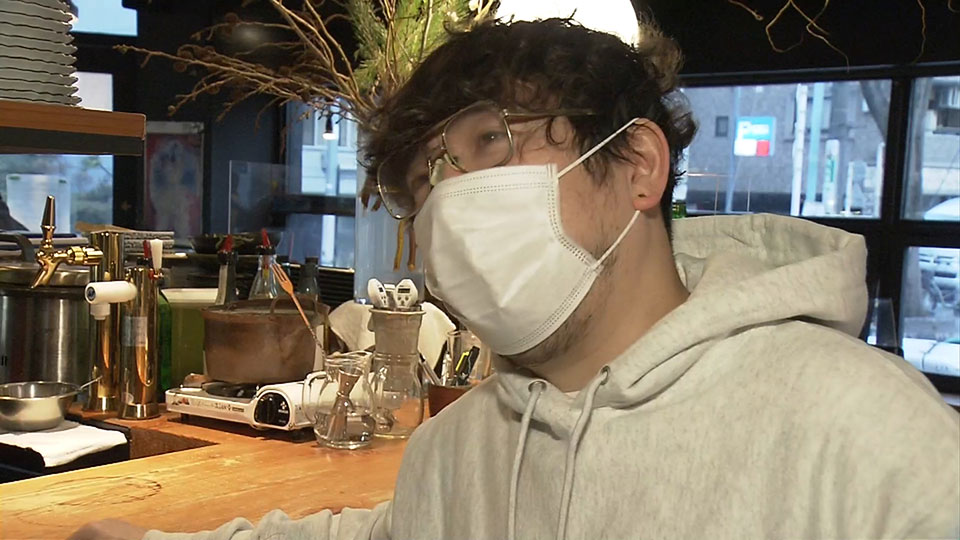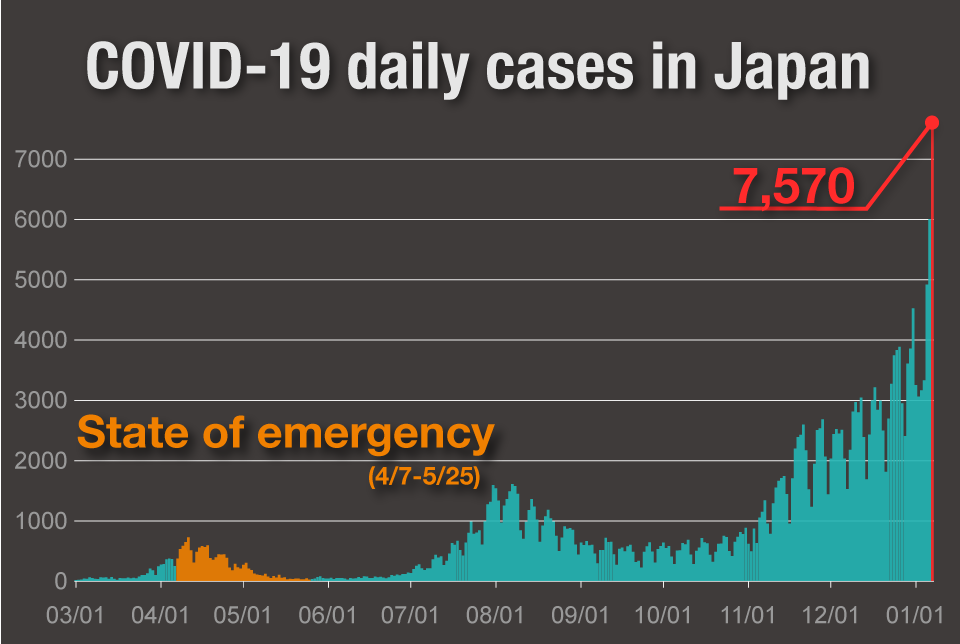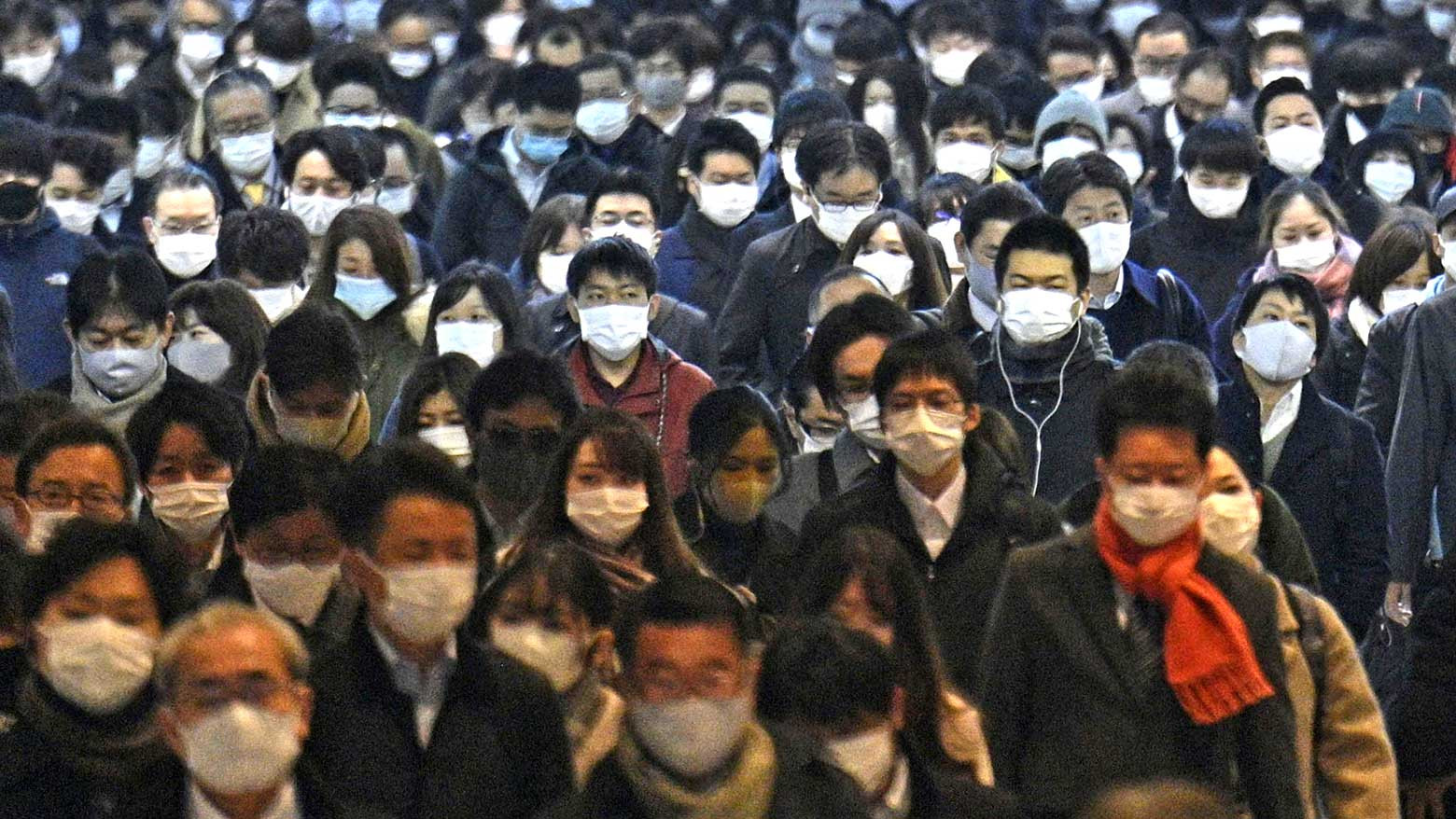The declaration covers Tokyo and the prefectures of Kanagawa, Saitama and Chiba. It will remain in place until February 7.
The key to curbing the virus is said to lie with dining and drinking establishments. Bars and restaurants are being asked to close by 8 p.m. and to stop serving alcohol an hour earlier. Residents are being asked to refrain from non-essential outings after 8 p.m. Businesses that fail to comply without good reason will be named publicly.
Restaurant owners have been struggling with the effects of the pandemic, and some fear this latest ask will push them to breaking point. Shimizu Kousuke runs eight restaurants in Tokyo. He says the latest measure casts doubt over his future.
Last April, during the first state of emergency, Shimizu focused on takeout food, but it wasn't profitable. His monthly sales were down by more than half compared to the same period the previous year. He says the compensation he got from the central and Tokyo governments made little difference. "I need to get a fair amount of financial support from the government. Otherwise I think I'll go bankrupt,” he says.
Credit research firm Teikoku Databank says a record 780 restaurants and bars went bankrupt last year. Akama Yuya, a senior researcher of Teikoku Databank, says the economic impact of the current state of emergency could be even more serious than last year’s, because many more bar and restaurant owners are saying they will go bankrupt if the situation continues.
The government will help prefectural governments compensate establishments that comply with the shorter hours. It plans to cover about 80 percent of the handouts of up to 1.8 million yen, about $17,000 dollars, per month per venue.

The declaration comes after a surge in the daily number of new cases. On Thursday, the nationwide number reached a record 7,570. About half of those cases were in the Tokyo area, including a record 2,447 in the capital itself.
The number of patients in serious condition in Tokyo has risen to a record 121. Experts on a panel assessing the situation say healthcare services in the capital will collapse if the numbers keep increasing at the current rate.
The deputy head of the Tokyo Medical Association, Inokuchi Masataka, says if the hospitalization rate remains unchanged, it may take less than two weeks for the number of patients to exceed the 4,000 beds secured by the metropolitan government for coronavirus treatment.
Hamada Atsuo, a professor at Tokyo Medical University and an expert on infectious diseases, says he is concerned that a second state of emergency won’t have the impact the first one had because people have gotten used to living under the pandemic.
He says if the number of infections keeps rising for another two weeks, the authorities should consider measures beyond just restrictions on bar and restaurants.

The number of new infections is also rising outside the major urban areas. Osaka prefecture reported 600 new cases on Thursday, breaking a record set a day earlier. Aichi prefecture also had a record number of daily new cases Thursday with 431.
Osaka Governor Yoshimura Hirofumi said his government plans to ask the central government to declare a state of emergency there too. Yoshimura is expected to formally make the request as early as Saturday. The prefectures of Hyogo and Kyoto, which border Osaka, are also considering such a request.

